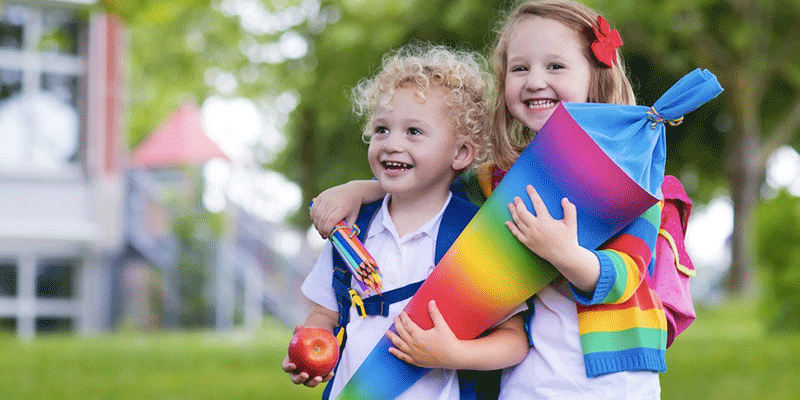
Communicate
While it’s important to talk about what makes a good friend, it’s also good to identify which behaviors are not welcome. Do not focus on specific children and why they are “bad” and others are “good.” Instead, explain the values that you live by in your home, such as positive language, respect for others, sharing, and fair play. It could be as simple as saying, “In our house, we have certain rules that we follow. When someone comes to visit and refuses to follow those rules, he is not showing respect, and that makes everyone sad.” You can balance that by saying, “We have so much more fun when we spend time with friends who do follow the rules.”
Facilitate
To encourage healthy relationships, create opportunities for your child to play with kids who you think have a positive influence on her. Set up play dates at your house where you can observe the children playing together, and then encourage repeat dates with the kids that you feel are good role models for your child.
“You ought to play an active role in choosing your children’s friends. Who better to do this than the parents?” notes Schor. “Know your children’s friends, observe what’s going on, and see if they demonstrate the values you desire.”
If possible, choose to live in a neighborhood with high-quality schools. An Ohio State University study found a direct correlation between school quality and the types of kids that adolescents choose as friends. Kids in better schools tend to choose friends with more “prosocial” characteristics, such as good grades, good attendance, and involvement in extracurricular activities.
Relate
Finally, focus on your relationship with your child. The Ohio State study found that teens are more likely to report positive friendships when they have a good relationship with their parents. (A “good relationship” was defined as one in which the child and parents get involved in activities together, talk frequently, and express affection for one another.)
The more involved you are in your child’s life, the more opportunity you have to help your child develop friendships that can stand the test of time.
The Bully Factor
No matter how many good friends your child has, there may still be times when he finds himself the target of a bully. Talk with him about bullying and share these five tips.
- Walk away: Bullies are generally looking for a reaction from those they target. When they don’t get one, they’re likely to move on.
- Speak up: If a bully keeps on bullying, stand tall, look him square in the eye, and say in a clear, loud voice, “I don’t like what you’re doing. Please stop it now.”
- Ask for help: Talk to a trusted adult about the problem. A teacher or parent can help make the situation better.
- Find good friends: A bully is only one person. Concentrate on making strong friendships with people who make you feel good.
- Keep having fun: Don’t let a bully stop you from being part of the activities you enjoy.
This article was featured in Healthy Children Magazine. To view the full issue, click here.
Last Updated 1/25/2016
Source Healthy Children Magazine, Back to School 2007
The information contained on this Web site should not be used as a substitute for the medical care and advice of your pediatrician. There may be variations in treatment that your pediatrician may recommend based on individual facts and circumstances.






